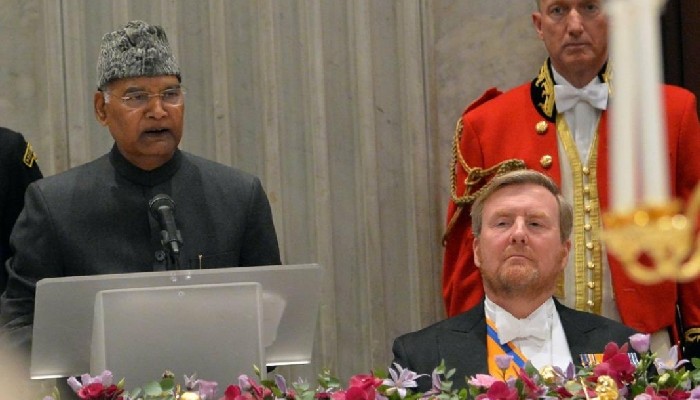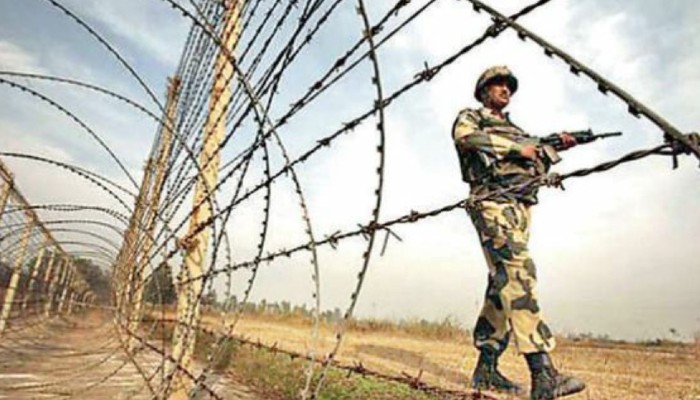Gorkhas and members of many other groups did not get permanent resident certificates earlier because of discriminatory policies
Manish Adhikari’s ancestors came to Kashmir from Nepal as soldiers and Generals in Dogra Maharaja Gulab Singh’s Army in the mid-19th century. Till the partition of India, these 100 Gorkha families lived a life of dignity – the Maharaja had settled them in a colony named after their two clans – Magar and Mal Bagh in Srinagar.
Their privileges continued in independent India. However, since 1990, their life took a turn as they faced hostility from the state government. It was no coincident that this happened at a time when the pro-Pakistan terrorism raged and Hindus were made to flee for their lives from the Kashmir Valley.
“The system closed its doors on us; we were labelled as Nepali people and deprived of all the rights as citizens,” 36-year old Manish, who owns a passport agency in Jammu, said.
Manish’s grandfather had fought in the First World War in 1931; his father, a sepoy in CRPF, had participated in 1965 war, his brother is a serving NCO in the Army and posted on the line of control in Poonch.
He can’t forget the day when after clearing a tough entrance and an endurance test for entry into Indian Navy he was rejected because he didn’t have a Permanent Resident Certificate (PRC) of Jammu and Kashmir.
“Rules had changed overnight; after 1990, the Jammu and Kashmir government had told armed forces to consider only those with a PR (permanent resident-ship) certificate.
“I pleaded with Deputy Commissioner, Jammu; showed him all certificates as proof of my family’s presence in Jammu and Kashmir for 200 years and yet he told me I was a Nepali and hence not eligible for PRC.”
Like Manish, about 10,000 Gorkhas felt cheated on being treated as aliens even after so many generations of theirs had lived in Jammu and Kashmir. They were discriminated against under the abolished provisions of Article 370 and 35A, the Jammu and Kashmir state government enjoyed arbitrary powers in deciding who was a permanent resident.
“August 5 was the happiest day of my life as Parliament’s decision restored the dignity and rights of our community,” he says. Being a community of warriors the Gorkhas had never agitated against this discrimination. As their children were denied jobs in Jammu and Kashmir, they left for big cities to make a living; some families also left for other states.
The Gorkhas were the first to apply for domicile certificates under the new dispensation. “Now we can get legal rights on the land on which we have built our houses (it was given to them on lease by the government of Bakshi Ghulam Mohammad in 1962) and our children can get jobs here,” says Karuna Chettri, a community leader in Jammu and Kashmir.
The discriminatory regime under the Jammu and Kashmir state’s special powers had played havoc with generations of people who had been duped initially into settling down in Jammu and Kashmir and then never given full rights as citizens.
Labh Ram Gandhi’s parents had reached Jammu while escaping the violence of partition in their village Razia in Narowal, Punjab, Pakistan. It had been only two months of their stay in Jammu when Pakistan sent tribesmen and regular army men in disguise in October 1947 to invade and annex Kashmir for it.
Again, Gandhi’s parents along with others had started their march towards ‘India’ as they believed Jammu and Kashmir would fall to Pakistan when they were stopped at state border Lakhanpur.
Prime Minister Jawahar Lal Nehru and Kashmiri leader Sheikh Mohammad Abdullah requested them to stay put in Jammu and they agreed.
Also, since Jammu and Kashmir had acceded to the Indian domain and raiders were defeated, they felt relaxed.
“We were settled in border areas from where the Muslims had left for Pakistan but never given any rights on land, jobs etc.” Gandhi and some 7,000 families of West Pakistan refugees who had come from Sialkot, Gurdaspur, and Gujarat of Punjab (Pakistan) to Jammu via Sialkot, faced poverty and rampant joblessness in Jammu for seven decades.
Gandhi says each day he rued his parent’s decision to return to live in Jammu’s border with Pakistan till August 5 gave him hope and a sense of justice.
“It was a golden day for us,” says Gandhi, an ex-serviceman. His community is at the forefront of applying for the domicile certificates, the new citizenship document. “The certificates are being processed and will happen but COVID-19 has delayed the one-time payment of Rs 5.5 lakh to each family,” he said.
These communities have a thousand heart-breaking stories of their children living in utter hopefulness at being denied jobs on the basis of citizenship.
The Valmikis of Punjab are ready to celebrate their first freedom anniversary on August 5. Some 250 scheduled caste families of the community had come to Jammu from Amritsar in 1957 on the invitation of the government of Bakshi Ghulam Mohammad.
They were promised good salaries and all rights as the government desperately required them to deal with a situation of a prolonged strike by local safai karamcharis. Being denied PRCs 6,000 members of the community were only eligible for jobs of safai karamcharis.
Radhika Gill, a promising athlete, is from the community. She can now hope to get jobs of her choice and as per her merit since she can’t be forced to become a safai karamchari.
Besides, there are hundreds of women who were married to non-locals and denied their full rights to inherit property, are now queuing up for domicile certificates.
According to a Congress leader who doesn't wish to be named, “the grant of Jammu and Kashmir residentship to the refugees is the most humane change that Jammu and witnessed this year.”
He admitted all other political parties had not gone beyond paying lip service to the refugees in Jammu.
 Contact Us
Contact Us  Subscribe Us
Subscribe Us









 Contact Us
Contact Us
 Subscribe
Subscribe
 News Letter
News Letter

